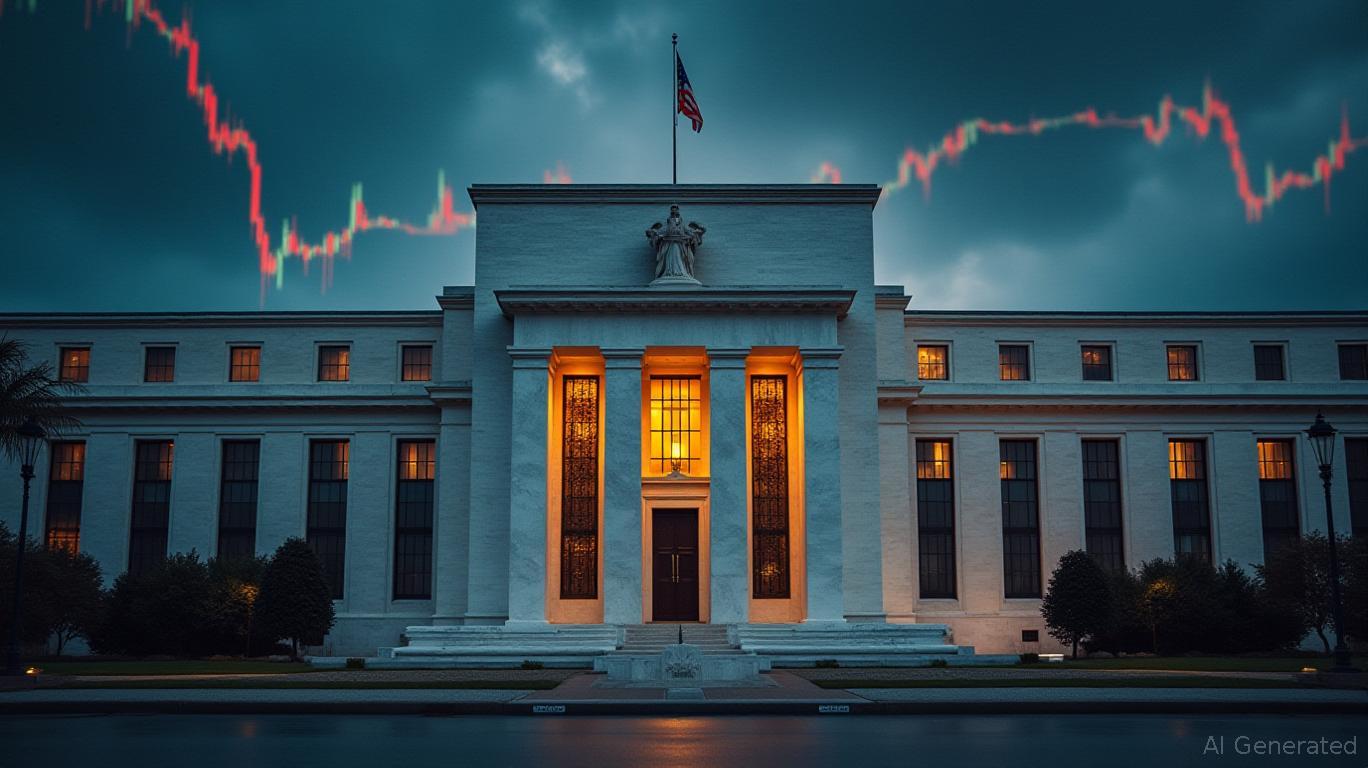Fintech Companies Safeguard Intellectual Property as Hong Kong Requires Stablecoin Licenses
- Hong Kong's HKMA mandates licensing for all HKD-pegged stablecoins (local/foreign) under new 2025 framework. - Ant Group files "ANTCOIN" trademark for virtual currencies, aligning with regulatory timeline ahead of licensing. - Framework requires full reserves, audits, and AML protocols for stablecoin operators seeking HKMA approval. - JD, Fosun join fintech firms securing trademarks like "Jcoin," leveraging Hong Kong's digital asset innovation hub status. - Regulatory clarity supports Hong Kong's role as
Hong Kong’s financial authority has indicated that any stablecoin tied to the Hong Kong dollar—regardless of whether it is issued locally or internationally—will need to obtain a license under the city’s new stablecoin regulations, which come into effect on August 1, 2025, according to the
The Hong Kong Monetary Authority (HKMA) has set out comprehensive rules for stablecoin issuers, requiring them to maintain full reserves, undergo routine audits, and implement strong anti-money laundering measures. These standards are applicable to both domestic and overseas operators, who must secure HKMA approval before making fiat-backed stablecoins available to users in Hong Kong. The regulatory framework is intended to encourage innovation while managing potential risks, establishing the

Ant Group’s trademark registration highlights the importance of establishing brand protection before launching new products. By securing the "ANTCOIN" trademark, the Alipay parent company is preparing the legal foundation for future digital currency projects. While the company has yet to officially announce a token launch, it is aligning its actions with Hong Kong’s regulatory schedule, which provides a grace period for applicants to fulfill licensing requirements. Experts in the industry point out that such early preparations are typical among major financial firms gearing up for new offerings or adapting to regulatory changes.
This regulatory shift has encouraged other large mainland-affiliated corporations to take similar steps. JD.com’s financial subsidiary, JD Coinlink, has applied for trademarks on "Jcoin" and "Joycoin," and Fosun International has participated in policy discussions with Hong Kong authorities. These moves reflect a growing interest in using Hong Kong’s forward-looking digital asset policies to connect traditional finance with blockchain technology.
Paul Chan Mo-po, Hong Kong’s Financial Secretary, has stressed the city’s significance in national development strategies, including its role in the 15th Five-Year Plan (2026–2030), as a central platform for broader economic integration, according to
With the stablecoin sector evolving, industry participants are watching closely as companies like Ant Group work through the licensing process. The HKMA’s strategy—blending support for innovation with strong risk controls—mirrors a worldwide movement toward more structured oversight of digital assets. As Hong Kong’s market becomes increasingly attractive to investors, the balance between strict regulation and technological advancement will shape the city’s influence in the future of finance.
Disclaimer: The content of this article solely reflects the author's opinion and does not represent the platform in any capacity. This article is not intended to serve as a reference for making investment decisions.
You may also like
Partisan Stalemate Results in $14 Billion Losses and 42 Million Facing Hunger as Shutdown Hits 35 Days
- U.S. government shutdown hits 35 days, matching historical record as partisan gridlock disrupts services for millions. - 42 million Americans face food aid delays under SNAP, with states using emergency funds amid federal funding disputes. - Economy risks $7B-$14B loss as shutdown extends, with GDP growth projected to drop 1-2% depending on duration. - Air traffic delays and unpaid federal workers highlight human costs, while political leaders blame each other for stalemate. - Trump administration oppose

Bitcoin Updates: Ambiguous Fed Rate Direction Triggers Crypto Sell-Off, $1.2 Billion Liquidated
- Crypto markets saw $1.2B in liquidations as Bitcoin and Ethereum dropped 3% amid macroeconomic uncertainty and trader panic. - Top exchanges like Hyperliquid and HTX recorded massive losses, with high-profile traders suffering $15M-$33M in single-day wipeouts. - Fed's ambiguous rate-cut signals and Trump-Xi meeting failed to stabilize prices, while Coinbase's negative premium index highlighted U.S. selling pressure. - Despite 3-month lows for ETH and altcoins, analysts like Nick Ruck suggest Fed policy s

Ethereum News Update: Crucial Support and Resistance Clash for Ethereum: Bulls and Bears Face Off in Intense Showdown
- Ethereum's price hovers near $3,600–$3,750 support, with bulls targeting $4,000+ and bears warning of a $3,300 drop. - Technical indicators show neutral-to-bearish momentum, while on-chain data highlights $165B reserves and stablecoin strength. - A Binance 30,000 ETH order and Fed policy signals could drive volatility, with $4,000+ potentially unlocking $5,000–$6,000. - Key resistance at $4,100–$4,250 remains intact since mid-2025, requiring a breakout to confirm bullish momentum.

BCH Drops 1.9% on November 4 as Weekly and Monthly Declines Worsen
- Bitcoin Cash (BCH) fell 1.9% on Nov 4, with 8.3% weekly and 7.25% monthly losses, contrasting a 14.22% annual gain. - Technical indicators show mixed signals: oversold RSI hints at potential rebounds, but bearish MACD divergence suggests lingering downward momentum. - A backtest seeking 15%+ BCH spikes since 2022 failed due to no historical matches, prompting analysts to propose lower thresholds or alternative triggers like volume surges.